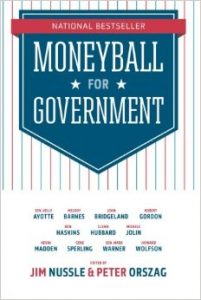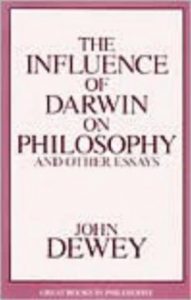It may once have been reasonable for the public to enact social change on the basis of principles alone. Though these principles did not in themselves justify the political action, they tended to promote the liberty of the individual to develop to fulfill his or her own fullest potential, and insofar as they had such consequences these principled political actions were justified. Specifically I mean that the individualistic liberal societal attitude of which I often speak was right to apply principled ideals of liberty in achieving personal freedom. Such actions canalized the development of individual liberty such that it tended toward liberty of the development of the individual. As such these were the actions necessary for their time.
Yet times have changed, and the relevance of such principled action has long passed. Rather than stay out of the way, the government has rightly restored some of its power to promote liberty, a development which we saw over the course of the 20th Century. This was the type of political action suited to the times, as the earlier individualistic liberalism, despite its advances in liberty, had the negative effect of granting what was once the government’s power to large corporations, allowing them dominance over the laboring class. This situation necessitated the regrowth of the scope of government, this time with an emphasis on the government’s ability to promote individuals’ liberty. We saw this through such as examples as FDR’s “Second Bill of Rights.”
However this was still principled action, though in the opposite direction, meaning that the principle tended to promote the expansion rather than the restriction of government programs. (The 2nd Bill of Rights serves again as an example of such principles.) Yet in the current times our society has shifted yet again such that no such principled approach can be the most efficient means of securing the liberty of individuals to grow and develop. Our conditions of time and place have changed. In the so-called “data-driven” society we have become, we now possess the technology to assess the consequences of political action more scientifically. A principled approach is only right insofar as it is useful — but now that we have the ability to judge the consequences of individual policies more accurately and systematically, we should accordingly adjust our approach to allow the use of such methods to their fullest potential.
 In particular, the benefits of using statistical methods and mathematical modeling seem clear. Such groups as “Moneyball for Government” seek to “stop spending dollars on programs that aren’t getting results” by using such methods. This group advocates the “use [of] data and evidence to continuously improve quality and impact, while also reducing duplication and cutting red tape that can strangle new ideas,” and seeks to “focus on outcomes and lives changed, rather than simply compliance and numbers served.” These more rigorous and experimental methods will allow us to try several compelling policies, quantitatively assess the results of each, and choose the most effective program.
In particular, the benefits of using statistical methods and mathematical modeling seem clear. Such groups as “Moneyball for Government” seek to “stop spending dollars on programs that aren’t getting results” by using such methods. This group advocates the “use [of] data and evidence to continuously improve quality and impact, while also reducing duplication and cutting red tape that can strangle new ideas,” and seeks to “focus on outcomes and lives changed, rather than simply compliance and numbers served.” These more rigorous and experimental methods will allow us to try several compelling policies, quantitatively assess the results of each, and choose the most effective program.
Another example is seen with the article “Modelling a Basic Income with Python and Monte Carlo Simulation,” which gives a simple demonstration of how mathematical and computational methods can be used to gain informational leverage on economic policy decisions. Certainly, such techniques are used today by many holding or seeking political power when making political and especially economic decisions. What I advocate is that the scope of such methods is expanded into the realm of public discussion, such that most public arguments will be quantitative and based on scientific rigor, rather than the current state of public argument, which is at argument from ethical principles and at worst pure sophistry. Though the domain of applying these statistical methods to politics is still yet an inchoate science, I expect the domain to rightly grow in influence on public debate and policy decision.
No doubt there will remain much argument to be had about the creation and assessment of such models, but this discussion will be more rigorous and scientific. I believe this is the most scientific and thus the most effective means currently available to us for assessment of and decisions about political action. Use of these methods will enable us to judge which policy is most likely to promote individuals’ liberty of development most efficiently.

 Don McLeroy’s religious fueled assault on public schools is a classic example of a ruler who serves his own interest in such a way that it infringes on the liberty of an entire society. His ideology is directly at odds with Darwin’s pragmatic work and the very existence of the scientific method. It is an enemy to what
Don McLeroy’s religious fueled assault on public schools is a classic example of a ruler who serves his own interest in such a way that it infringes on the liberty of an entire society. His ideology is directly at odds with Darwin’s pragmatic work and the very existence of the scientific method. It is an enemy to what